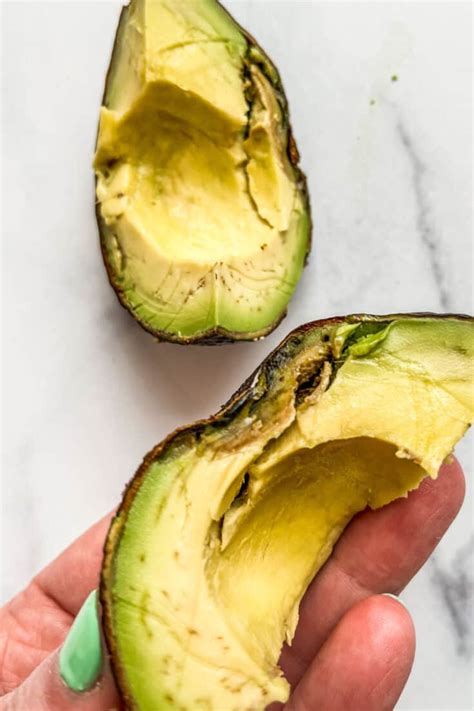How to Know if An Avocado Is Bad: A Guide to Ripe and Rotten Avocados
Avocados are delicious and versatile, but knowing when they're ripe—and when they've gone bad—can be tricky. This guide will help you avoid the disappointment of a mushy avocado and ensure you always get the perfect one for your guacamole, toast, or salad.
Visual Clues: What to Look For
The best way to tell if an avocado is bad is by using a combination of visual and tactile checks. Here's a breakdown:
1. The Skin's Appearance:
- Ripe Avocado: A ripe avocado will have dark, purplish-black skin (for most varieties like Hass). The skin might feel slightly soft to the touch, but not mushy. Some varieties, however, will remain green even when ripe. Pay close attention to the other cues below.
- Underripe Avocado: The skin will be hard and green (for Hass avocados). Don't be fooled by a slightly soft spot; it may still need more time to ripen.
- Overripe/Bad Avocado: The skin will be very dark, almost black, and possibly bruised or wrinkled. You may also see dark spots or discoloration. Pressing it gently will reveal a mushy texture.
2. The Stem Test:
This is a simple test to determine ripeness:
- Gently remove the stem. If the underlying flesh is green, the avocado is ripe. If it's brown, it's likely overripe or even spoiled. A slightly brown area is acceptable.
3. The Feel Test:
Gently squeeze the avocado in your hand.
- Ripe: A ripe avocado will yield slightly to gentle pressure. It shouldn't feel hard or rock-solid, but it shouldn't be mushy either.
- Underripe: An underripe avocado will feel firm and unyielding.
- Overripe: An overripe avocado will feel very soft and mushy.
Smell Test: When to Discard
While visual and tactile cues are helpful, the smell test is crucial in determining if an avocado has gone bad.
- A ripe avocado will have a mild, slightly sweet aroma. If you detect a sour, fermented, or unpleasant odor, it's a strong indication that the avocado has spoiled.
How to Save Slightly Underripe Avocados
If your avocado is a little too firm, you can speed up the ripening process:
- Place it in a brown paper bag with a banana or apple. The ethylene gas released by these fruits will help ripen the avocado faster.
- Store it at room temperature. Avoid placing it in the refrigerator until it's ripe.
How to Properly Store Avocados
Once ripe, store avocados in the refrigerator to slow down the ripening process. Cut avocados should be stored with the pit to prevent browning. You can also store cut avocados in an airtight container with a little lemon or lime juice to prevent oxidation.
Conclusion: Perfect Avocados Every Time
By following this guide and paying close attention to the appearance, feel, and smell of your avocados, you can easily identify whether they're ripe, underripe, or spoiled. This will help you avoid waste and ensure you always have perfectly ripe avocados for all your culinary creations. Remember, practice makes perfect! The more avocados you handle, the better you'll become at judging their ripeness.
